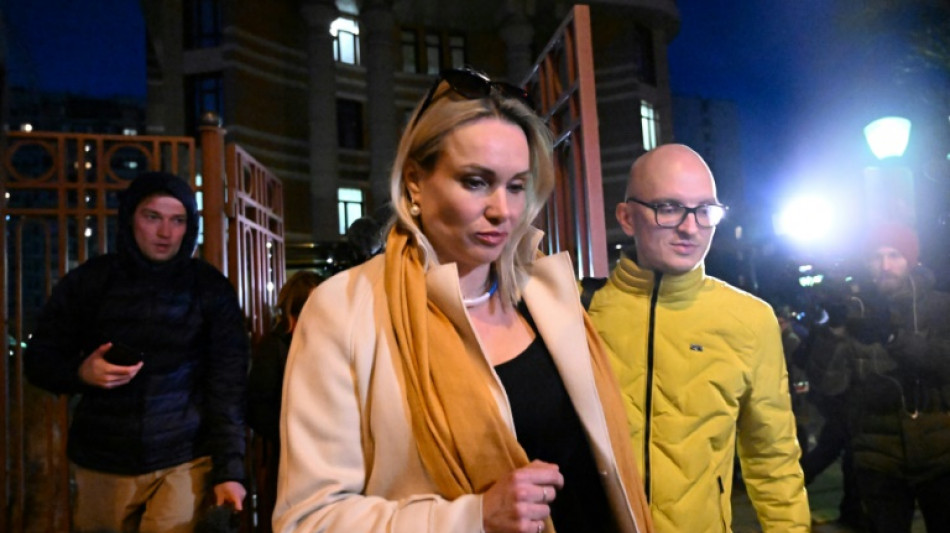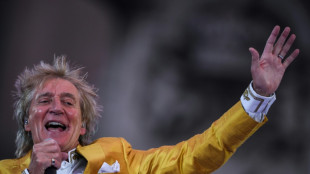

Russia TV protester quits channel, turns down asylum offer
A Russian editor who protested Moscow's military action in Ukraine during a state TV news broadcast said Thursday she is quitting her job but not accepting France's asylum offer, calling herself "a patriot".
Marina Ovsyannikova, an editor at Channel One television, barged onto the set of its flagship Vremya (Time) evening news on Monday, holding a poster reading "No War."
She was detained and a Moscow court rapidly fined her 30,000 rubles (260 euros). But despite being freed she could face further prosecution, risking years in prison under draconian new laws.
She told France 24 television from Moscow on Thursday that she had "handed in all the documents" for her resignation from Channel One. "It's a legal procedure," she said.
Ovsyannikova, who has two young children, said she had "broken the life of our family with this gesture," with her son in particular showing anxiety.
"But we need to put an end to this fratricidal war so this madness does not turn into nuclear war. I hope when my son is older he will understand why I did this," she said.
French President Emmanuel Macron had offered earlier this week asylum or other forms of consular protection to Ovsyannikova, saying he would bring up her case with Russian leader Vladimir Putin.
But Ovsyannikova told Germany's Der Spiegel in an interview published Thursday that she would not take up his offer and would stay in Russia.
"I don't want to leave our country. I am a patriot, my son is even more so. We don't want to leave in any way, we don't want to go anywhere," she said.
She told Der Spiegel that she had prepared her action alone but indicated she believed many colleagues privately sympathised with her.
"Most people who work for state television understand very well what is going on. They know only too well that they are doing something wrong," she said.
She told France 24 that some of her colleagues had resigned but that many were unable to even if they wished.
"I am happy that people handed in their notice but the economic situation is very hard and people find it very hard to stop their work," she said.
Press freedom activists outside Russia accuse its state television of painting a severely distorted picture of the war in a bid to maintain support for what the Kremlin calls a "special military operation."
Ovsyannikova's prime-time on-air message in Russian read: "Stop the war. Don't believe propaganda. They are lying to you here."
N.Tornincasa--IM



